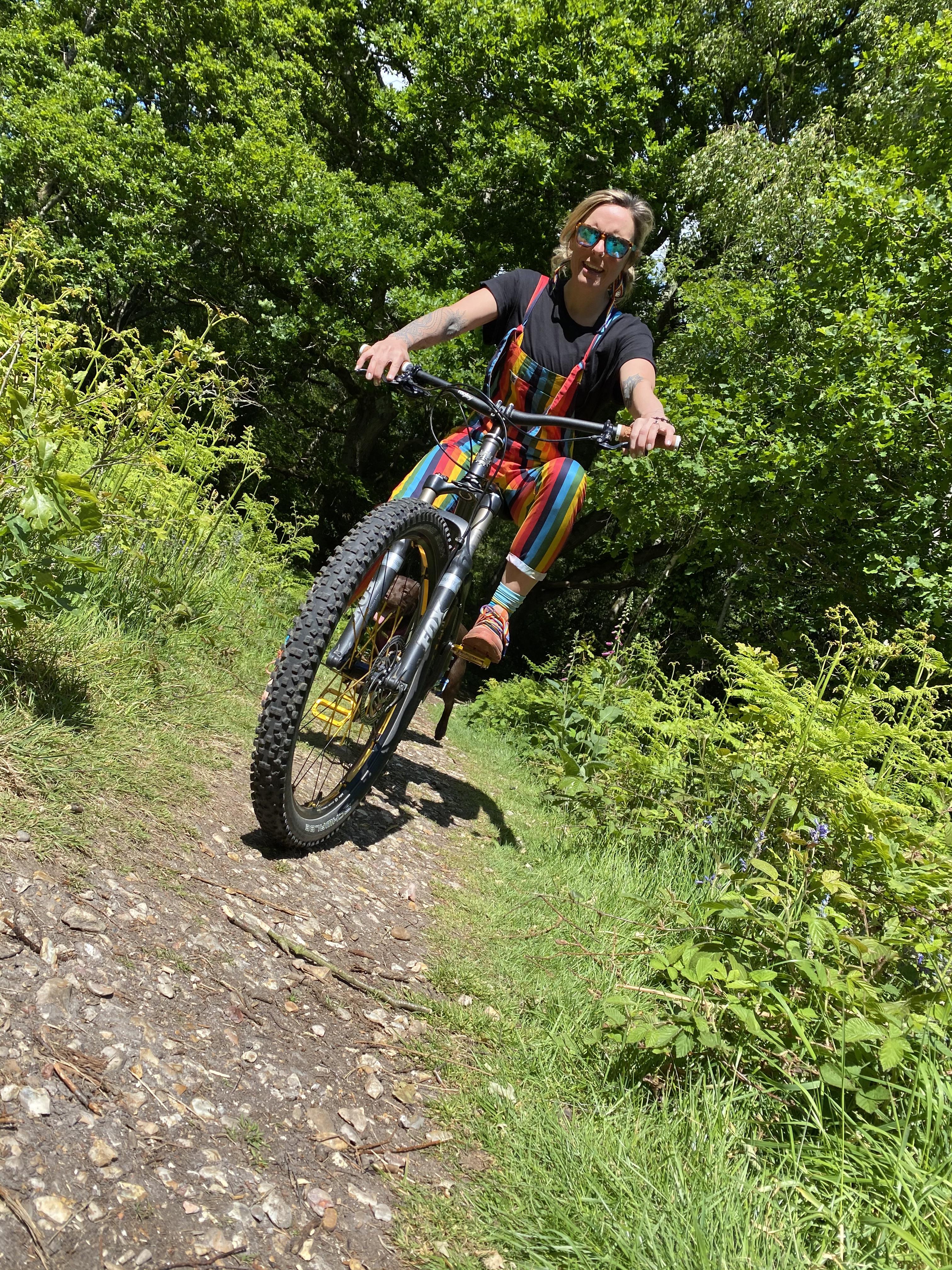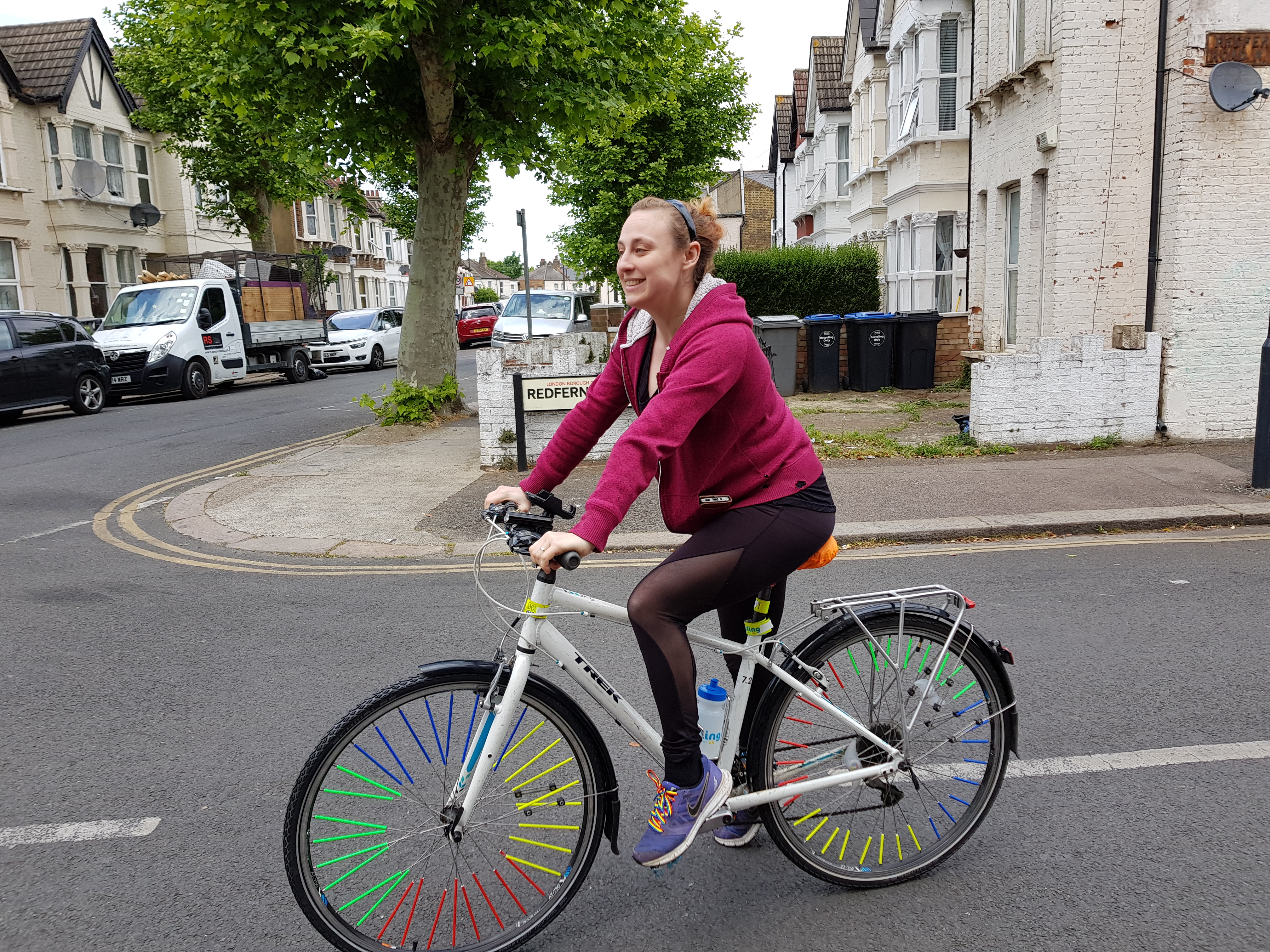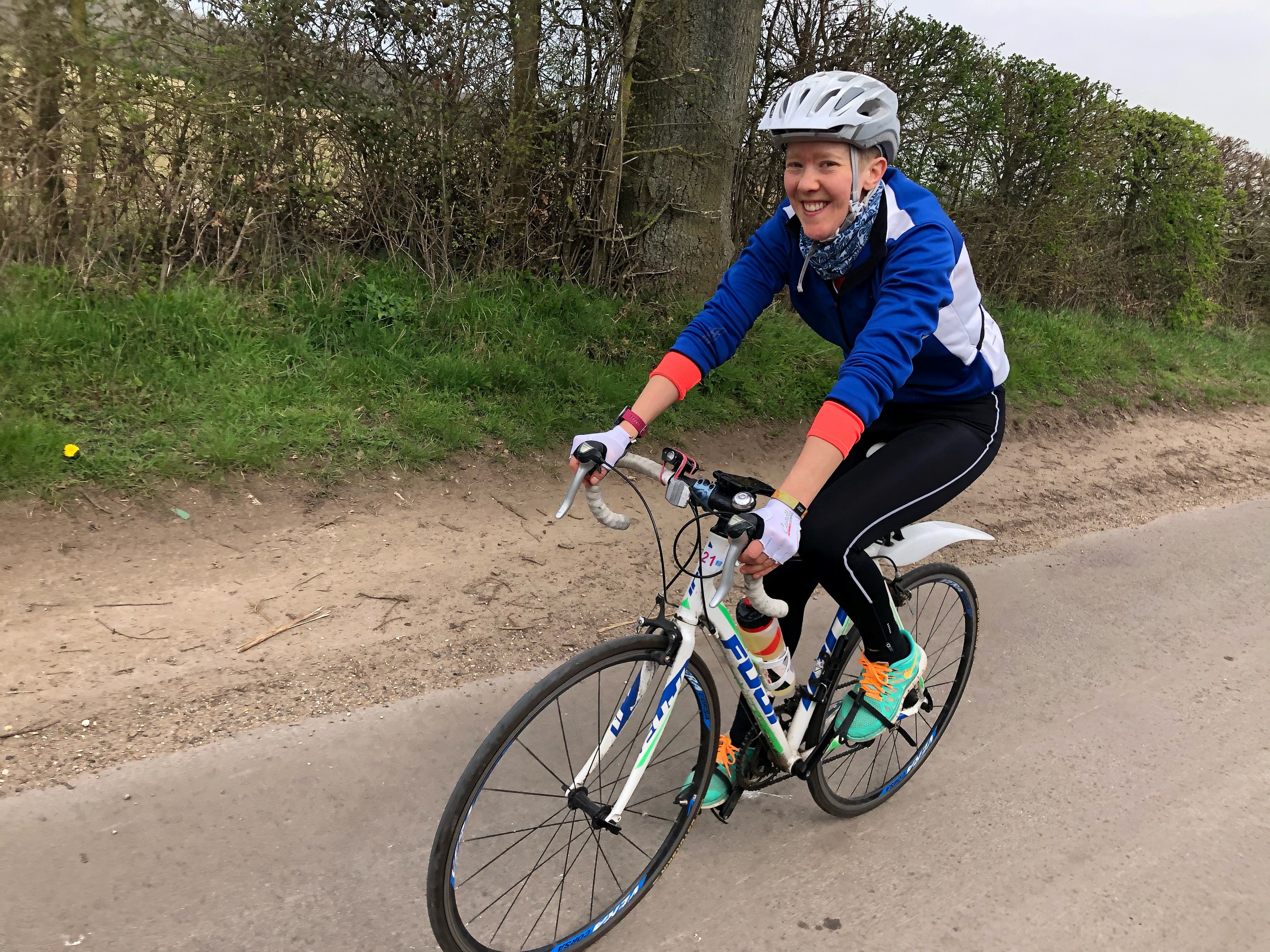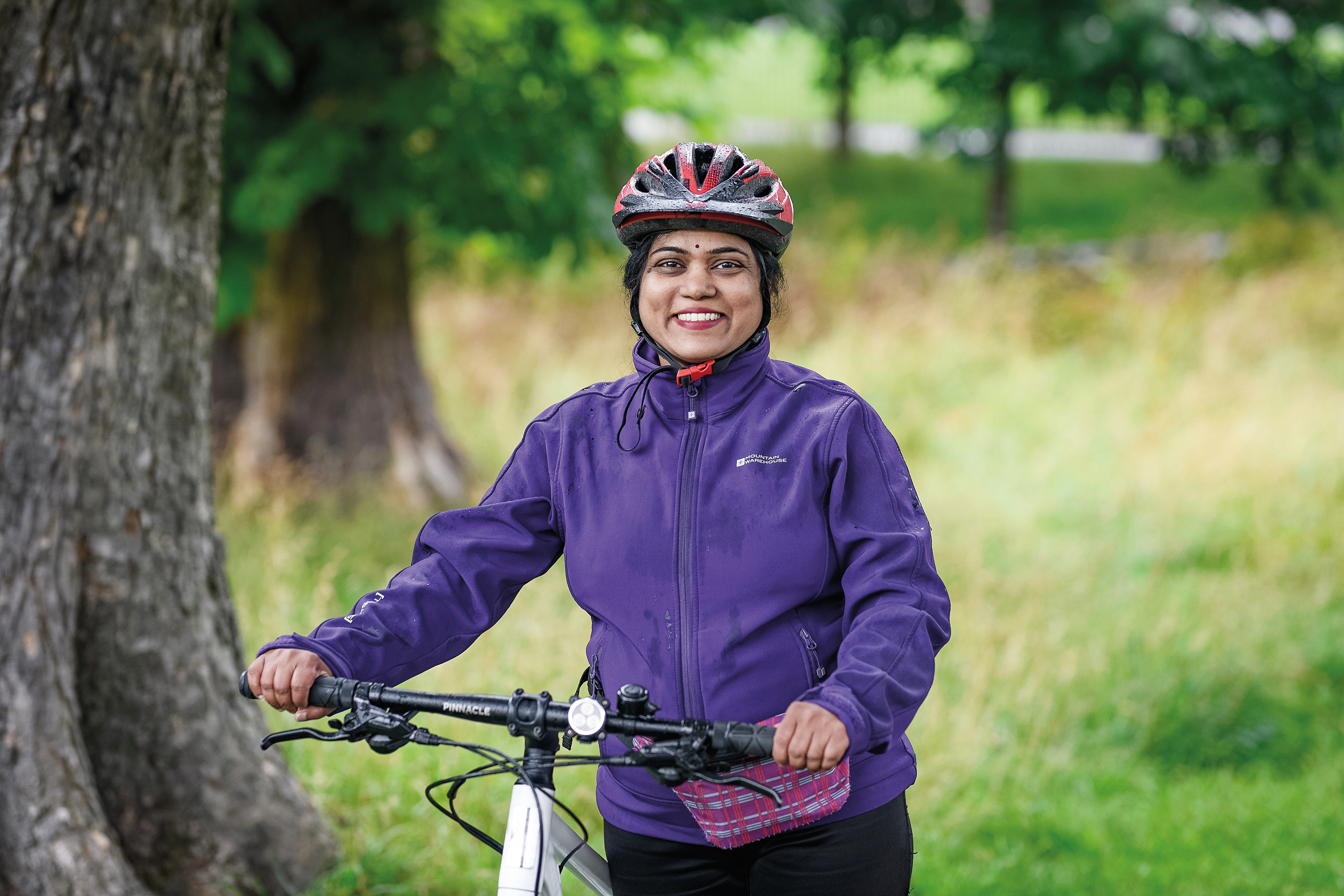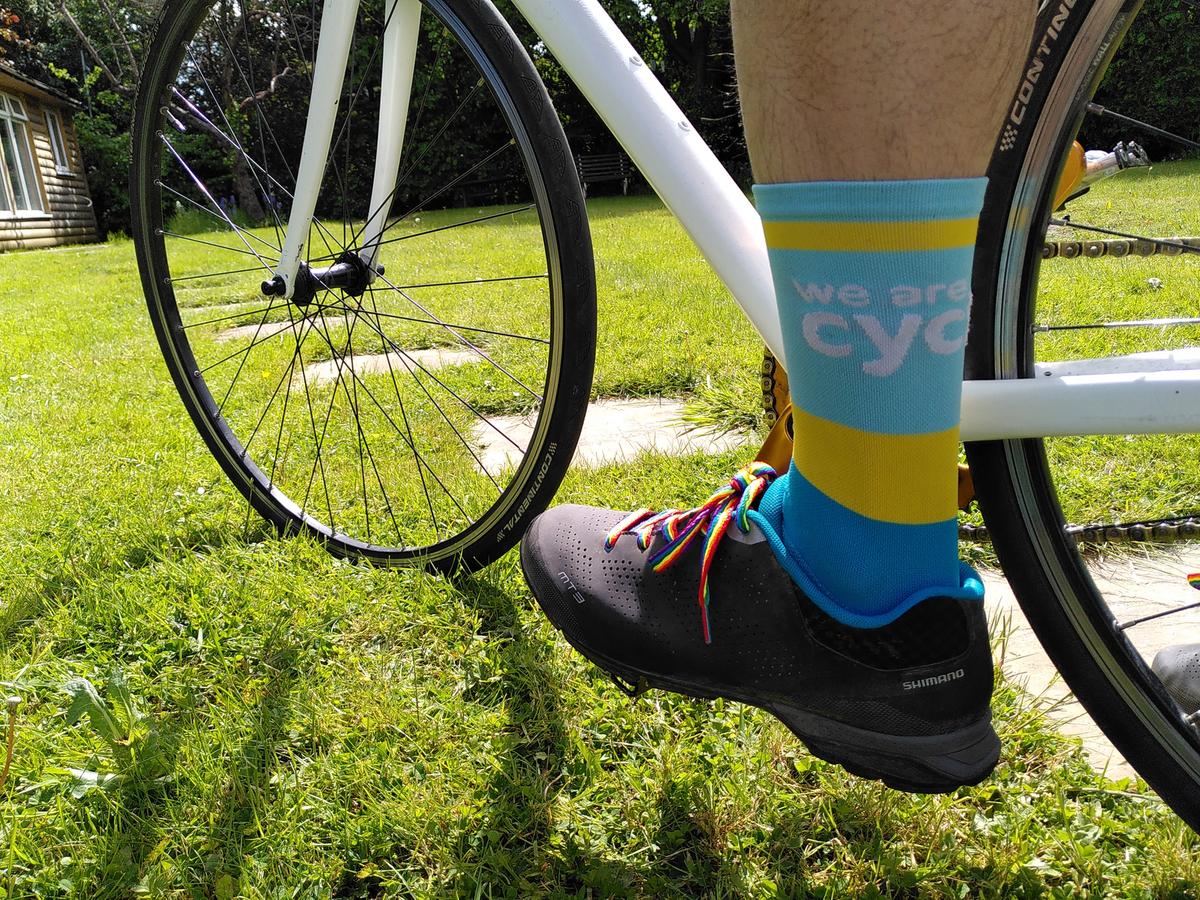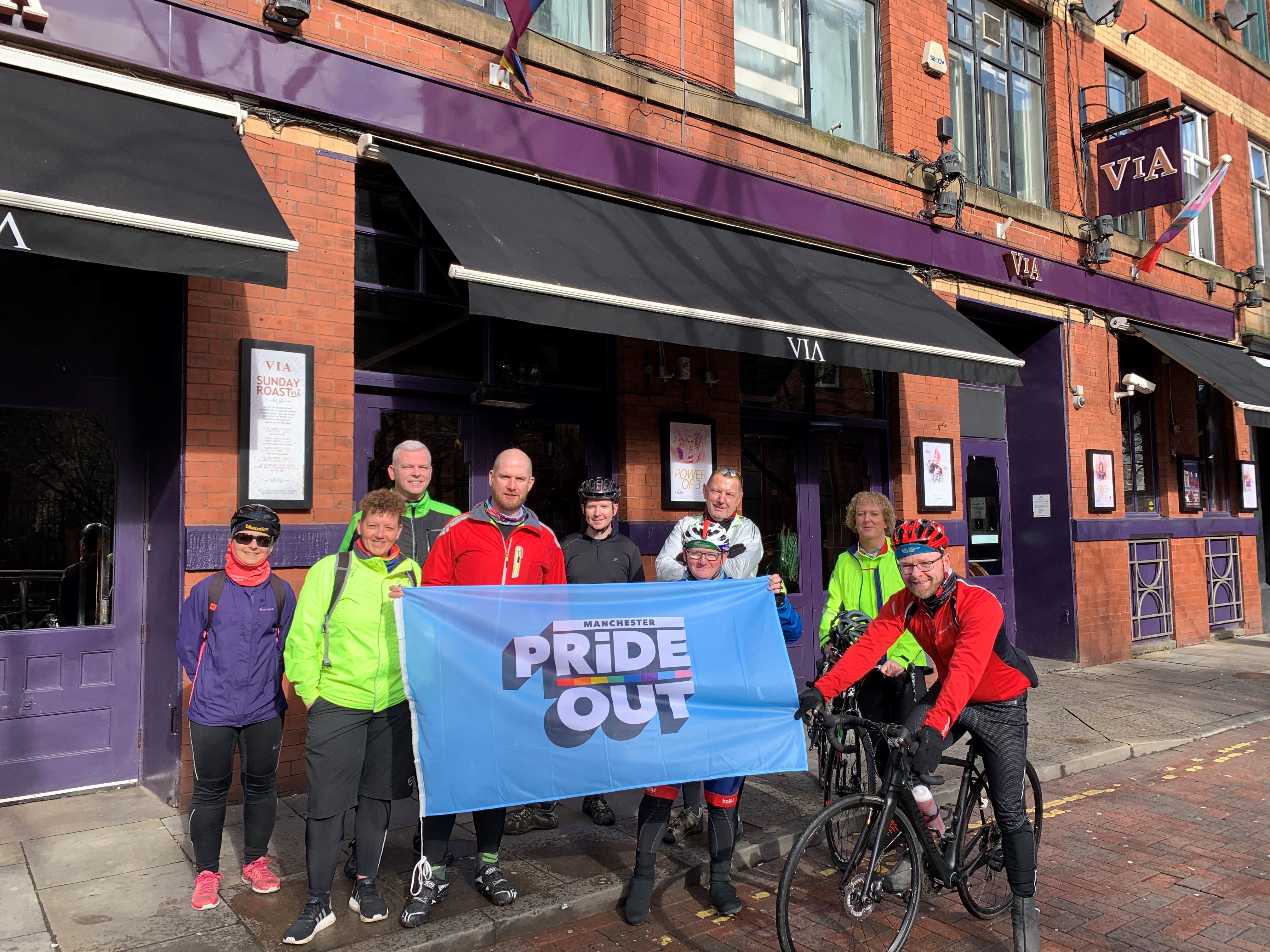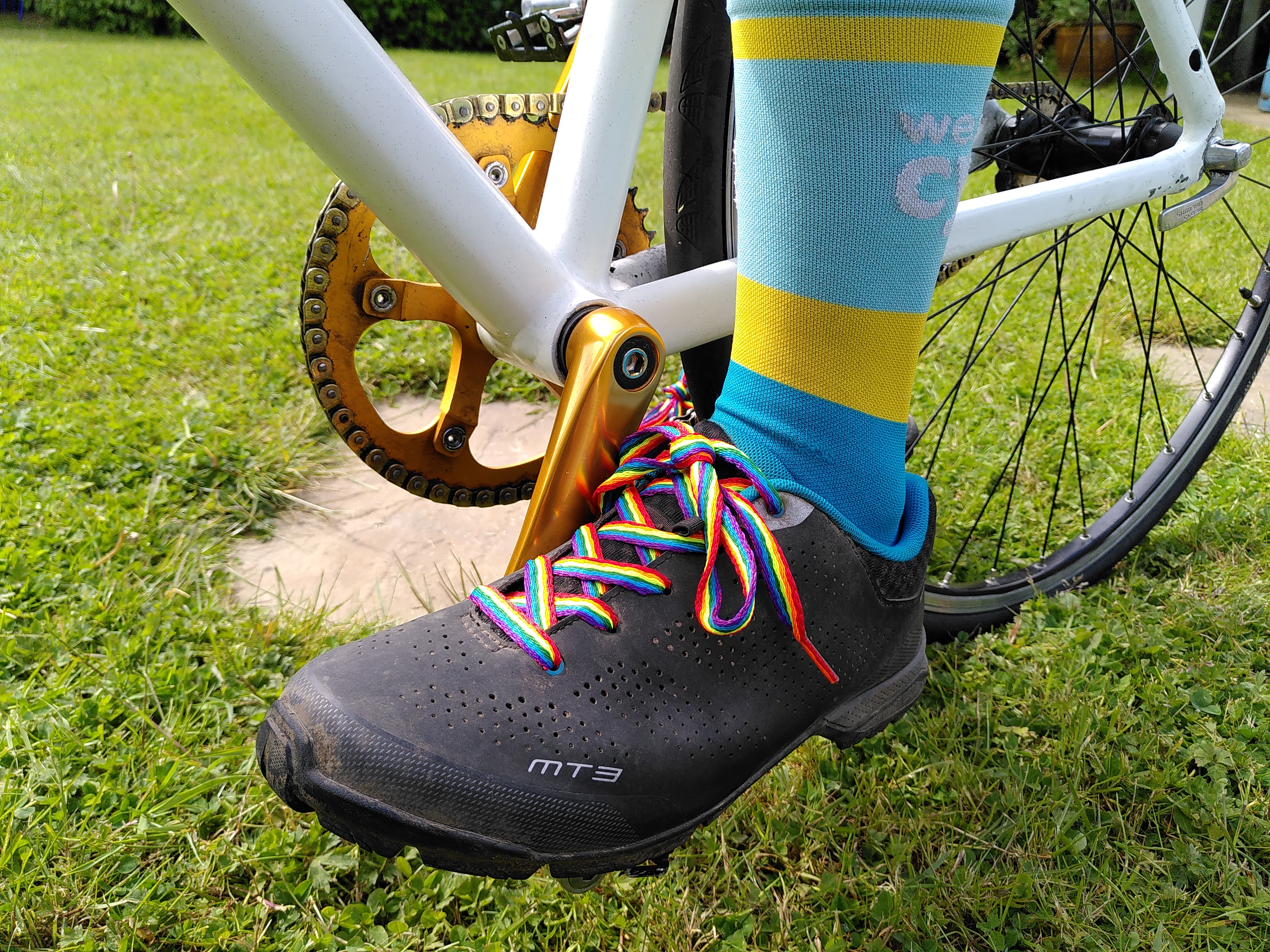CycleOut London: 25 years of providing support and friendship to riders in the LGBT+ community
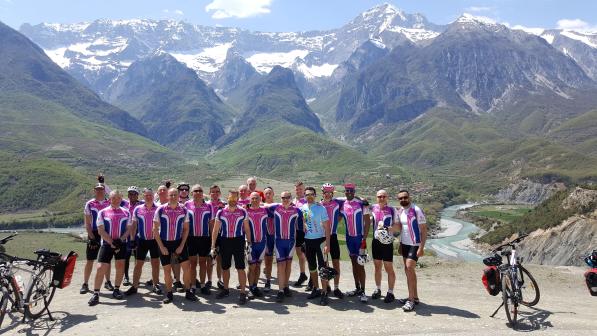
Who are we?
CycleOut are a non-profit club run by volunteers with activities that cater for all types of cyclists, offering a mix of day rides from short leisure outings of about 25km to fast sports rides of up to 120km - and everything in between! We are the only major LGBT+ club in the Greater London area (plus some participation from other UK major cities) and our rides are graded to suit various cycling capabilities, most taking place at weekends. Non-members can also join us at our one or two monthly rides in Richmond Park.
We also have multiple cycling trips abroad and UK at cost. For example, we have an annual large cycling trip to Majorca and have been there every year for the last 21 years, except 2020 for obvious reasons, and many to various parts of France, Cyprus, plus many regions in Italy, Belgium, Holland, and recently to Albania and more.
We take pride in what we do and in providing a safe, healthy environment for the community. We have around 200 members, with membership a modest £10 a year to cover running costs; we also have a constitution, focused heavily on safety whilst riding, an AGM, and an elected committee. We have an internal and external Facebook page, have just started an Instagram account and also have a website, which we use as a working tool for booking rides, answering frequently asked questions and storing our rides archive plus much more.
Diversity and accessibility
We are delighted that we have had a significant increase in our membership the last few months, with the increased interest in cycling. Diversity and accessibility are important values to us: we like to think of ourselves as a cycling club which happens to also be LGBT+ and are keen to remain a non-political social and cycling club. We attended London Pride the last four years in a row and are part of the various LGBT+ sport clubs organisations.
Service to the community
With almost a quarter of a century of service to the community, we thought it would be fun to reflect on cycling and society in general, how the group has evolved and where we think we are heading now. We surveyed three groups of riders:
- more experienced, founding members;
- members with medium tenure around ten years; and
- brand new members who joined us in the last three months.
We asked six key questions and found some fascinating results.
1. Why did you join an LGBT+ cycling club? Have the reasons changed over the years?
Some people might question the need for a cycling group based around people's sexual orientation as much as their interest in cycling. So we asked why our members had joined CycleOut specifically.
Founding member Graham said that joining a gay cycling club means "one does not have to hide ones sexuality or cope with awkward questions about girlfriends etc although obviously a gay guy could be more relaxed about cycling in a predominantly straight club now than was the case 20 years ago. Some members have formed long-term relationships with blokes they have met in the club while many others have made new friends."
Fellow long-time member Peter says he became and remains a member of CycleOut as it: "could offer rides quite different for most other clubs, which are more sports orientated", while Julian says his life would have been much lonelier had he not joined CycleOut, adding that he's developed many of his long-standing friendships through the group. He says: "It is a great way of meeting like-minded LGBT+ people in a non-scene environment," adding that "it is a healthy and positive way to spend time together."
For Andi, a very recent addition to the club, CycleOut provides the same opportunity: "I joined because I wanted to meet other gay men in a healthy context where sex, drugs or alcohol aren’t involved, unlike other bars, clubs and apps used to meet other people."
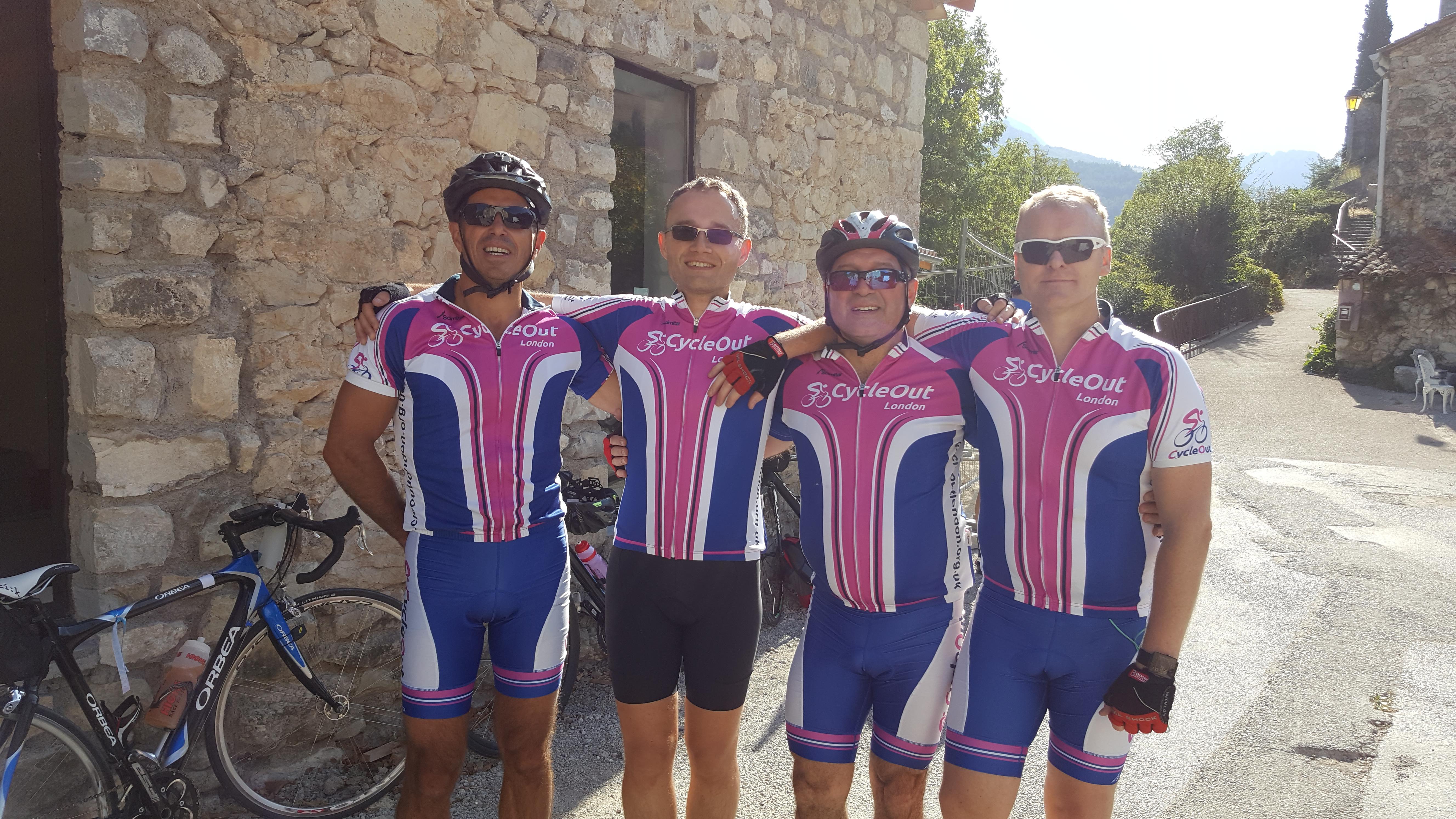
2. How does CycleOut London support the LGBT+ community?
I found it interesting that a long-term member didn’t relate well into the further definitions of what used to be called the 'gay community', saying: "How I dislike 'LGBT+'. We're all gay men. We have no more in common with lesbians or the others than we do with straight men or women."
His point has an element of truth, unfortunately, as we do seem to attract just gay males; my understanding, though, is cycling in general continues to be dominated by male cyclists.
Founder member Graham thinks that as CycleOut is involved in events such as Pride, it helps create a 'non-stereotyped' picture of gay guys, and Mike agrees that the group helps with visibility: "Like all other LBGT+ sports clubs, it shows that LGBT+ people are multi-faceted, and for the members, it provides a welcoming home to meet like-minded people." Meanwhile, Robert feels that CycleOut helps the community by being a group in which "members can do what they enjoy doing in a safe, inclusive and non-judgemental environment".
LGBT+ social/fitness groups are essential as it takes away the stress and need of having to explain our gender identities to others - we can just be who we are and simply enjoy each other's company and pursue the joy of cycling.
Joe, new CycleOut member
New members also think that the group provides them with more than just opportunities to go cycling and is a safe space where they can feel particularly well-supported: "I'm sure the LGBT+ community will help me get through any difficult situations, just being there so I can reach out to it any time I feel that I need to," says Daniel, while Joe thinks that: "Fresh air, exercise, and time to talk goes a long way to supporting my mental and physical wellbeing during these stressful COVID filled days. LGBT+ social/fitness groups are essential as it takes away the stress and need of having to explain our gender identities to others - we can just be who we are and simply enjoy each other's company and pursue the joy of cycling."
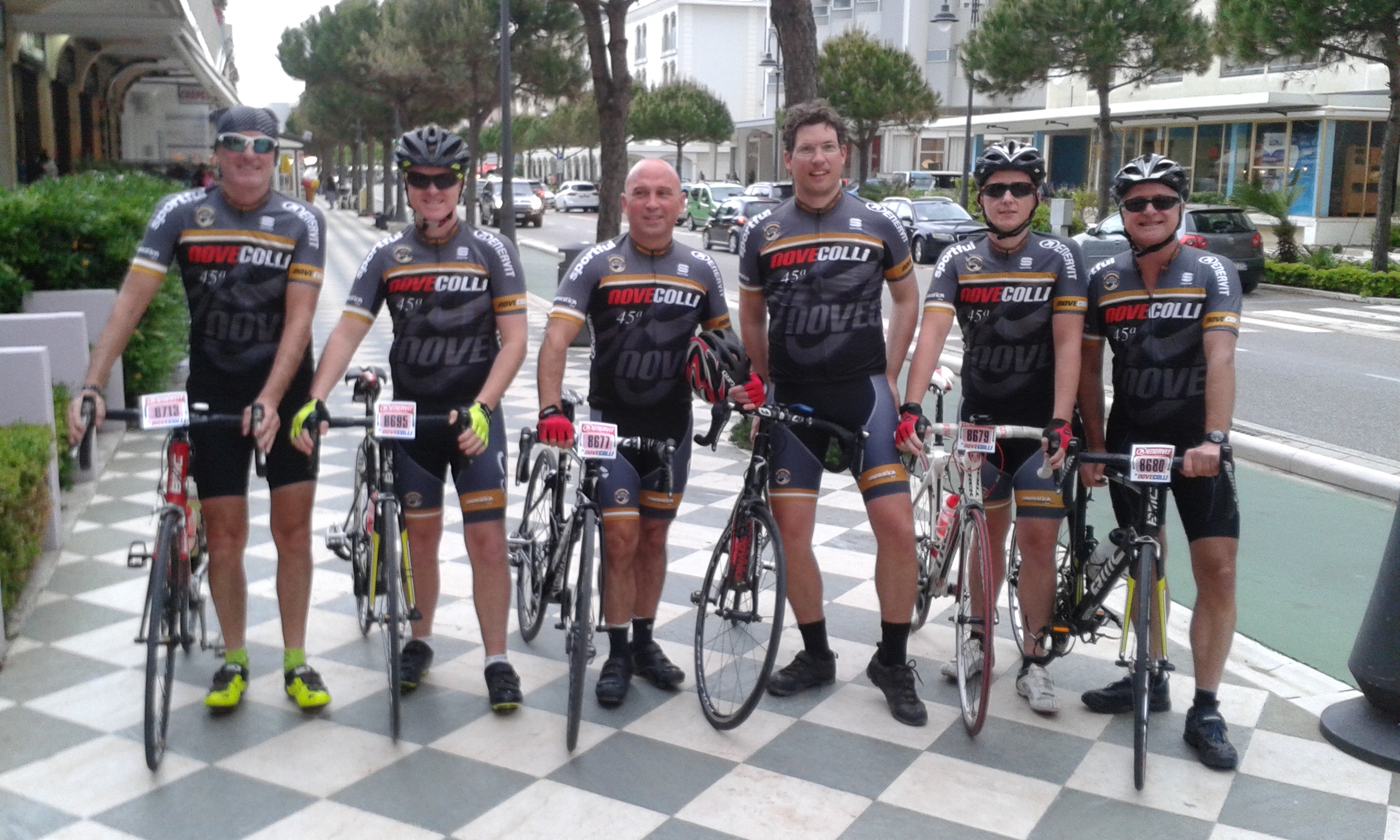
3. What has been the most memorable ride, trip or event of the past 25 years and why?
Like all successful cycling groups, however they are constituted, rides and trips away are always extremely popular with members. CycleOut is particularly good at organising these. The regular trip to Majorca seems to figure highly as the favourite: "Majorca is probably one of the best places in the world for cycling holidays, with hotels with really sophisticated cycle facilities."
However, other memorable trips were also mentioned: Stephen said: "For me, the most memorable of all the CycleOut events have been the weekend in Leominster, Herefordshire, and the week in Reith, North Yorkshire, which were both huge successes with superb countryside and no end of comic episodes. I would also cite the week in Hungary which I organised and the weekends in Wissant, France which were my first trips abroad with the club. As for day rides, I would go for the outing to England’s oldest church at Bradwell-on-Sea, which attracted more than 20 people, and Gerard’s [another founding member] amazing Docklands tour for its sheer intricate knowledge of the area."
For me, Nasser, Albania was a great surprise and a treasure. We had a week of cycling in April 2019 with stunning scenery, great weather, hospitable people and amazing food, all for a great price too. Other trips mentioned by members included London to Paris, Cattolica / Emilio Romagna in Italy, and Robert says: "Mallorca in 2010, in the midst of the volcanic ash cloud, when just six of us finally made it out there, but were rewarded with fabulous rides, glorious weather and lots of fun!"
But for newer members, rides much closer to home were just as memorable. Joe says: "Before CycleOut, I had never been to Richmond Park even though I had lived in London since 2012. I really enjoyed my first Sunday ride with CycleOut. Without a reason to go, I would probably never have had the pleasure of riding in Richmond Park."
4. How has cycling in London changed in the past two decades?
We were interested in how riding in and around the capital has altered over the years. It seems mostly for the better:
One founding member reported that the equipment has got sportier, more sophisticated and technical over the past quarter century, while others noted that cycling in the city is now more mainstream:
Central London has "obviously become much more cycle-friendly", with one rider saying that when he worked as a dispatch cyclist, there was "virtually nothing cycle-friendly" and another who has been cycling in London for 43 years recalled that: "Back in 1977, there were very few cyclists on the road. I was in the Civil Service and I was the only person in my office who regularly cycled to work, which was regarded as a bizarre eccentricity until there were transport strikes and only I turned up on time!"
However, one rider feels that some things have changed for the worse: "For a London-based club, I think traffic has got worse and, with the loss of the guards vans on trains, travelling as a group with bikes is more difficult. In the past we could just turn up as a group of 15 and all get on one train with our bikes. Also there is now an afternoon restriction on many trains."
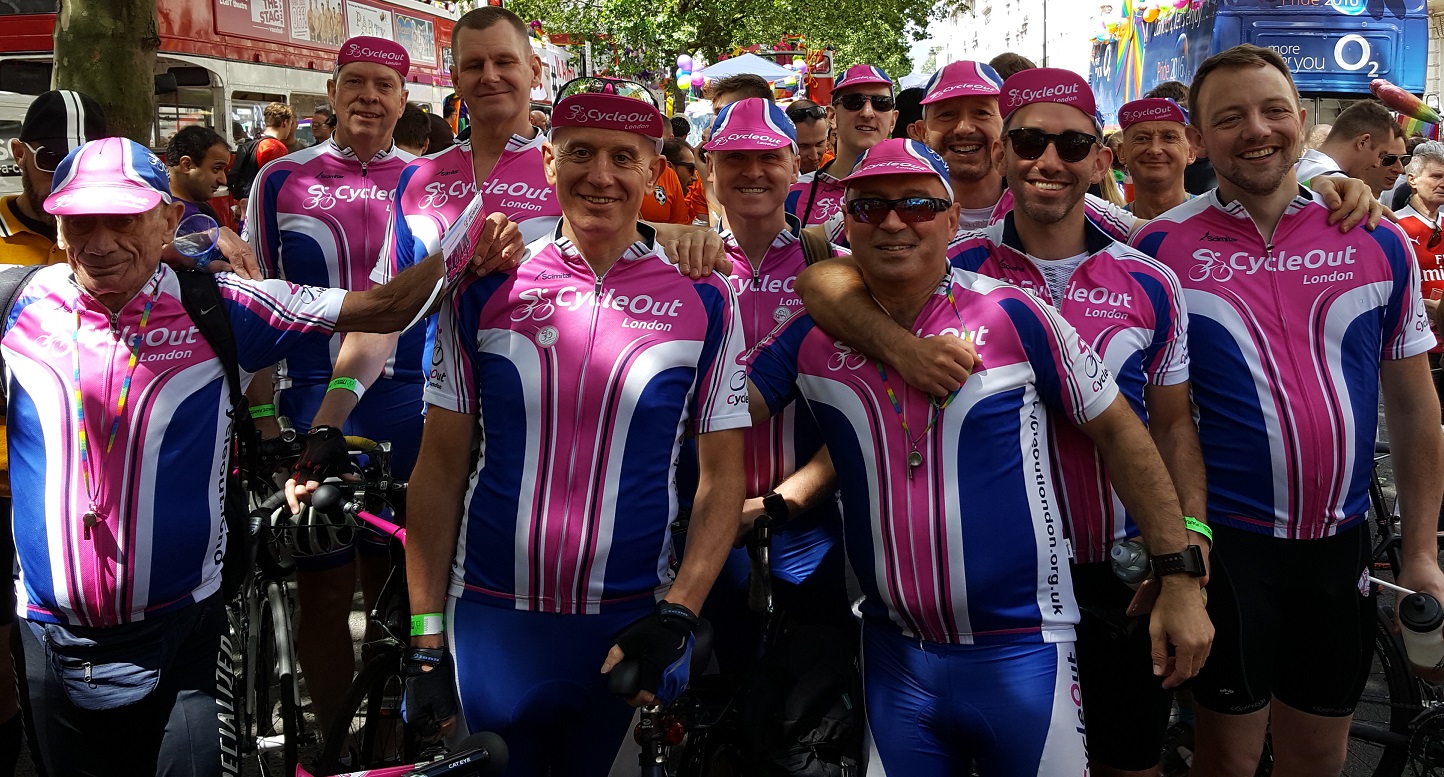
5. How have things changed for the LGBT+ cyclist?
This doesn't seem to have changed as much as the infrastructure and general cycling environment has but members still very much appreciate the warm and welcoming environment the group provides.
Stephen says that: "As a gay cyclist, the main asset has been the existence, survival and hopefully flourishing of the club. The trips abroad and in the UK have been much appreciated as it is just not the same to go with a predominantly straight cycling party."
Mike agrees: "Finding and joining CycleOut was the main change as a LGBT+ cyclist. It enhanced both my sporting and social life, moving from purely a commuting cyclist to a 'weekend warrior' and making many good friends."
Daniel from Romania says he used to take part in rides with straight people and women but he would not "go back to a straight group as we do need to have more things in common, not only cycling. There is no LGBT+ cycling group in my native country, unfortunately. In Romania, one cannot speak openly about sexual options in the cycling group, I mean you can if you want to, but I just decided not to, they would not understand, and I would get weird looks, which would make me uncomfortable and subsequently, I would have had to decide to quit the group."
6. What will cycling look like in, say, 10 years' time, both in general and as LGBT+ cyclist?
When we asked members to look to the future, founder member Tony thought that "there may not be any need for a gay group'' but also felt that "there's a different irreverent attitude to life which makes a gay group worthwhile." Fellow founder member Stephen agrees: "Assuming that wider attitudes towards LGBT+ people continue to improve, it may become harder to run a separate club, although I personally believe that it will still have a place."
New member Daniel also thinks there will continue to be a place specifically for the LGBT+ audience: "I am confident the group will exist for along time, to help gay people like me come together", as does fellow new cyclist Joe: "Hopefully, there will continue to be gay clubs that will continue to provide safe environments that support both the physical and mental wellbeing of LGBT+ cyclists."
Most believe cycling will continue to grow in popularity, alongside the growth in e-bikes and improved infrastructure such as fully segregated cycle lanes and improvements to the Highway Code, something Cycling UK is currently lobbying hard for.
How the group has been coping with the coronavirus lockdown
At the beginning of pandemic, the club adhered to the guidelines and recommendations of the UK government and cycling bodies such as Cycling UK, and thus had a dormant period initially but then ramped up nicely with a limit of two riders and rides of under 90 minutes. Following the relaxation of the guidance, now we run multiple micro rides up to a maximum six riders and don’t use trains for the time being. We increased the number of rides to offset the smaller number of riders.
Our advice to anyone wanting to start their own cycling club
Having served on the committee of CycleOut for nearly 25 years, I feel our experience of setting up and running a cycling club, regardless of the intended membership, might be useful for others thinking of doing the same so I asked some of my fellow committee members for their tips:
- Tony is rather blunt and says: "Be prepared for personality clashes and dealing with them. Some volunteers seem to think they don't have to maintain the same standards of behaviour they do at work. Accept that some of the club will be takers and do nothing."
- Long-term member Graham is more pragmatic, however: "Anyone wanting to form a new club should keep it as relaxed and informal as possible until it grows to the point where written constitutions etc might be useful. I would also caution against getting too 21st century technology orientated - some of us like to ride without constant access to the internet, smartphones or helmet cameras and can plan a route without the help of satellites."
- Stephen said: "I think it is vital to offer a range of rides at different speeds and distances and experiment. Also important is to offer support, both technical and social, and resist the tendency to become cliquey. I think CycleOut is now succeeding in this, although it is odd that we have never succeeded in attracting [a steady membership of] lesbians."
- Peter and Robert both think that it's important to be clear about who you're aiming at and what you wish to accomplish: "The starting point is knowing what you want and finding others who want the same and to agree what it is you want to achieve."
- Julian also has some very sound advice, which CycleOut tries to follow: "Keep the structure of the club simple without too much bureaucracy. A club is just a way of bringing people together to go cycling. I believe the real strength of Cycleout is its simplicity. Also grade rides - there is nothing more distressing than going on a ride when the other participants are much stronger, and nothing more frustrating and disappointing than going on a ride that is just too slow or easy as well."
Cycling UK's advice to anybody wanting to start their own club
Perhaps you've recently taken up cycling as a result of lockdown or maybe you've been riding for a long time informally with a group of friends and like-minded people? Whichever it is, you can find a wealth of information and advice at Cycling UK to help you set up a formal cycling group and have the peace of mind that comes from affiliating to Cycling UK, the national charity just for cyclists.
Find out more
We are aiming to increase the diversity of our volunteer network and inspire a greater range of people to profit from the great benefits that cycling gives them. Come along to our Volunteer Celebration on Saturday 3 October and hear people like Nasser and others from underrepresented groups explain why more inclusive cycling groups are so important in achieving this.

